 Petzlover
Petzlover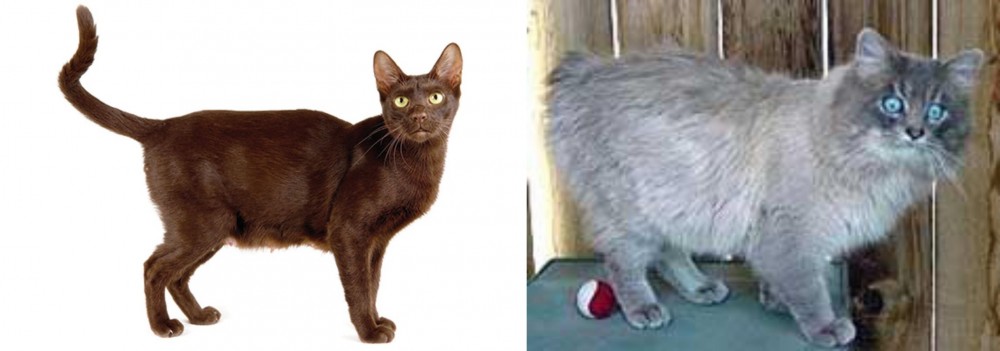 Havana Brown is originated from United Kingdom but Owyhee Bob is originated from United States. Both Havana Brown and Owyhee Bob are having almost same weight. Both Havana Brown and Owyhee Bob has same life span. Both Havana Brown and Owyhee Bob has same litter size. Both Havana Brown and Owyhee Bob requires Low Maintenance.
Havana Brown is originated from United Kingdom but Owyhee Bob is originated from United States. Both Havana Brown and Owyhee Bob are having almost same weight. Both Havana Brown and Owyhee Bob has same life span. Both Havana Brown and Owyhee Bob has same litter size. Both Havana Brown and Owyhee Bob requires Low Maintenance.
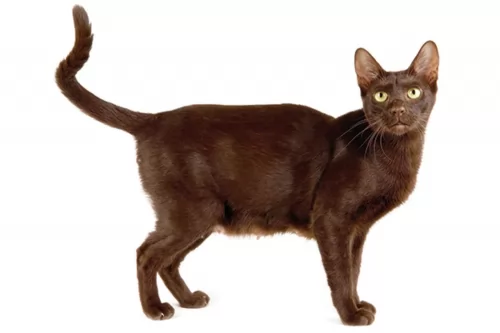 The rare Havana Brown cat seems to be a result of a planned breeding between Siamese and domestic black cats.
The rare Havana Brown cat seems to be a result of a planned breeding between Siamese and domestic black cats.
It was in the 1950s that cat fanciers in the UK became the early breeders. These breeders called themselves the Havana Group. They created the foundation of the modern-day Havana Brown cat.
These breeders managed to produce chocolate shaded kittens which became known as the Chestnut Brown Oriental. Kittens arrived in the US and were crossbred with the Chocolate and Seal Point Siamese to produce chocolate-colored kittens.
In 1964, the Havana Brown was accepted for Championship status by the Cat Fanciers Association.
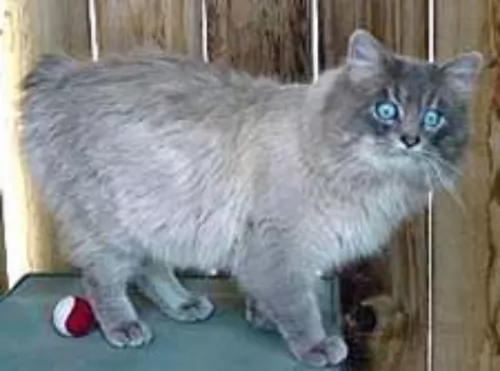 This breed of cat is a cross between two fantastic cat breeds – the Manx and the Siamese. It’s a cat breed that is recognized by the Rare and Exotic Feline Registry.
This breed of cat is a cross between two fantastic cat breeds – the Manx and the Siamese. It’s a cat breed that is recognized by the Rare and Exotic Feline Registry.
The Owyhee Bob is also just casually referred to as the Owyhee and it's an experimental feline breed.
It’s from the USA and is polydactyl, which means that the cat carries the genes of the Manx while the other breed used to create them is the Siamese.
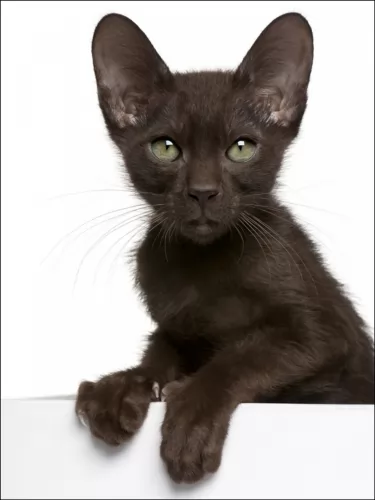 The Havana Brown is a medium-sized cat, being somewhat slender and weighing between 3 and 6kg. The body is long and muscular and the cat has a beautiful brown short to medium-length coat.
The Havana Brown is a medium-sized cat, being somewhat slender and weighing between 3 and 6kg. The body is long and muscular and the cat has a beautiful brown short to medium-length coat.
The coat color is in fact a rich reddish-brown shade. The ears are fairly large and round-shaped and the oval-shaped eyes are a beautiful green.
The Havana Brown is an intelligent, playful, curious cat who enjoys being in the company of its human family. They tend to gravitate towards one favorite family member.
They’re cats that don’t like being left alone for long periods of time. They get on well with children and he also won’t object to becoming friends with the family dog as well.
Friendly though they may be, they also enjoy spending some time on their own. Individual personalities vary but most are playful and talkative.
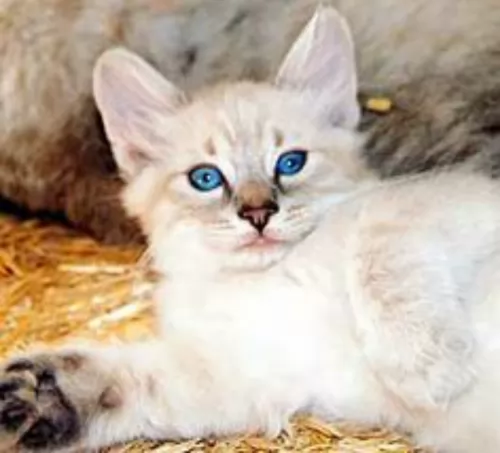 The cat has spotted or marbled markings on his coat which can be long or short. In fact, the coat can be in all colors and patterns.
The cat has spotted or marbled markings on his coat which can be long or short. In fact, the coat can be in all colors and patterns.
Its a medium to large-sized cat, muscular with a round head and medium to large-sized ears that have some feathering around the rounded tips.
The tail too can be long or short but the preferred look is the stumpy tail. The cat has large oval eyes that are wide-set and blue, like one of the parent cats - the Siamese.
The Owyhee Bob is a social cat and very playful. He likes nothing more than to be part of his human family. He is intelligent too and becomes a loving and loyal pet.
The personality of the Owyhee Bob is sweet-tempered and social. They are also these kinds of cats that follow you wherever you go and when you sit down, they’re eager to be in your lap.
These cats don’t do well in homes where their humans work all day, every day and they are left in solitude hour after hour.
Remember that the socialization you give your kitten as well as the environment it grows up in can play a role in the temperament of your cat.
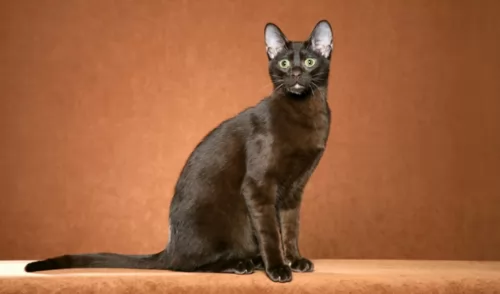 There is a good reason why the Havana Brown cat is so popular. People love the unusually rich brown coat which always has a gleam to it.
There is a good reason why the Havana Brown cat is so popular. People love the unusually rich brown coat which always has a gleam to it.
They also love that this chocolate-colored cat has a wonderful personality and can be a solid companion for humans. So long as you don’t leave him alone for a long time on his own, as that is part of his charm – wanting to be constantly involved with his human family.
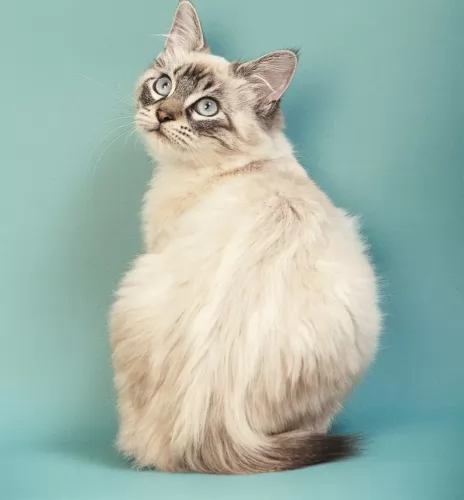 The Owyhee cat in your home becomes a wonderful pet. They’ve got such playful, jaunty personalities and they’re clever too.
The Owyhee cat in your home becomes a wonderful pet. They’ve got such playful, jaunty personalities and they’re clever too.
Social, sweet-tempered, and active, you won’t be disappointed by having such an awesome feline companion in your home.
After all, he has fantastic parent breeds – the Siamese and the Manx – and the two blended together brings out all the most amazing characteristics in the Owyhee Bob cat.
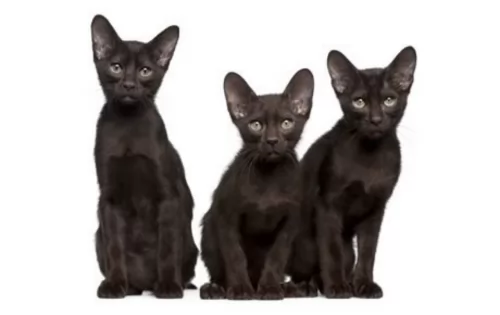 There are no known genetic diseases associated with this breed. They may have a bit of a higher occurrence of gingivitis than other cat breeds, and this thought to come from them having their Siamese ancestry.
There are no known genetic diseases associated with this breed. They may have a bit of a higher occurrence of gingivitis than other cat breeds, and this thought to come from them having their Siamese ancestry.
Beware of bladder stones with your cat which can start at any age. The stones can start off small but can grow larger, rubbing against the bladder walls and resulting in inflammation.
Bladder stones can also lead to blockage of the urethra so that your cat isn’t able to urinate. There are symptoms to indicate your pet may have bladder stones and these can be straining to urinate, painful and little urination, urinary tract infections, and blood in the urine.
This is a time when you want to get your pet to the vet just as soon as possible.
Also, be on the watch for eye infections. Conjunctivitis is one of these to look out for but there are other eye infections your cat can experience. They can come about because of an upper respiratory infection that spreads to the eyes, but they can be caused by any number of things such as bacteria, parasites, and viral infections.
You’ll notice your cat pawing at his eyes and there may even be redness, discharge, and swelling. You vet will be able to treat eye infections with ointments and eye drops.
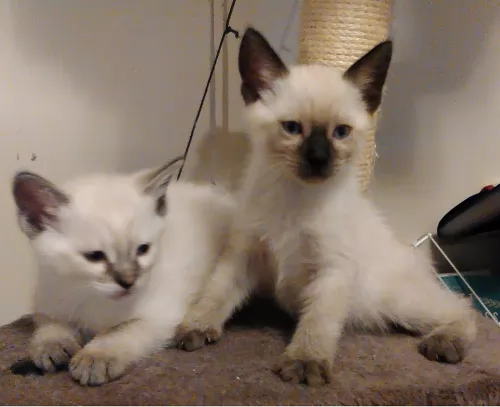 Every cat, regardless of how healthy can get ill. If you don’t want your cat to become a parent, he or she will need to be spayed or neutered as well which comes with a host of health benefits.
Every cat, regardless of how healthy can get ill. If you don’t want your cat to become a parent, he or she will need to be spayed or neutered as well which comes with a host of health benefits.
If you worry about the cost of vet bills, you can rather pay a small amount each month for pet insurance.
Certainly, as a cat owner, you need to recognize the signs and symptoms of some of the more common illnesses your cat could get so that you can get your feline pet to the vet before he gets too sick by neglecting it.
Cancer is a killer disease where cells grow uncontrollably so that the disease spreads to every area of the body. Cats can get different types of cancer but you need to know some of the symptoms to watch out for.
Your cat may lose weight, you’ll maybe notice a difficulty with swallowing, he has a sore that won’t heal, he doesn’t want to eat, he is losing weight and he may have a new, unusual lump.
This is a tricky illness and cats infected with this disease may not show symptoms until years after they were infected. With this disease, the cat’s immune system is weakened and the cat is open to all kinds of other secondary infections.
Parasites can make a cat seriously ill. It is why vets deworm kittens. Infestations of worms can cause a host of symptoms. Certainly, your cat is listless, dull and the hair may even fall out.
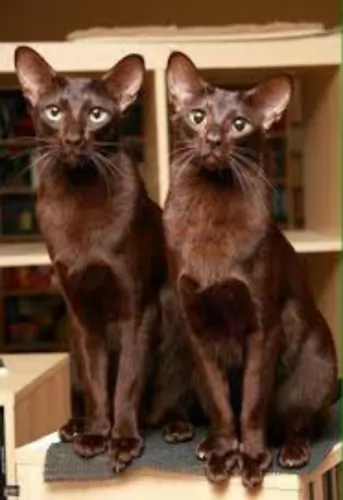 With the cat’s short coat, he experiences little shedding so very little grooming is required. A gentle brush once a week will be enough. These cats love attention and submit easily to a brush and body rub with a soft rubber brush.
With the cat’s short coat, he experiences little shedding so very little grooming is required. A gentle brush once a week will be enough. These cats love attention and submit easily to a brush and body rub with a soft rubber brush.
Check inside the mouth as periodontal disease is a problem with cats. You want to make sure that there aren’t any bad teeth as this can cause a lot of pain.
A vet can also be useful in examining your cat and pinpointing problems.
Check the inside of the ears too because they can become somewhat clogged with wax and dirt. If you don’t want to probe inside the cat’s ears with a cotton ball with warm water and apple cider vinegar, you can take your cat to the vet or to a professional cat groomer.
Keep the litter box of your cat spotlessly clean as these cats are fussy with cleanliness.
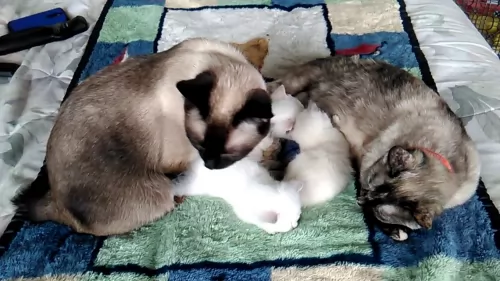 Your Owyhee Bob is a social cat so he will require interest and companionship from his human owners.
Your Owyhee Bob is a social cat so he will require interest and companionship from his human owners.
Choose the best cat food that there is. Your Owyhee Bob cat is a carnivore and he will require excellent cat food to ensure his health. Make sure he has a constant supply of fresh, cool water.
Provide a litter tray and clean it out every day.
Provide a warm, dry bed for your cat, stimulating toys, a scratching-post, climbing tree, food and water bowls, a collar and grooming accessories.
Get you Owyhee Bob to the vet when he shows any sign of illness. Make sure that he gets his kitten vaccines.